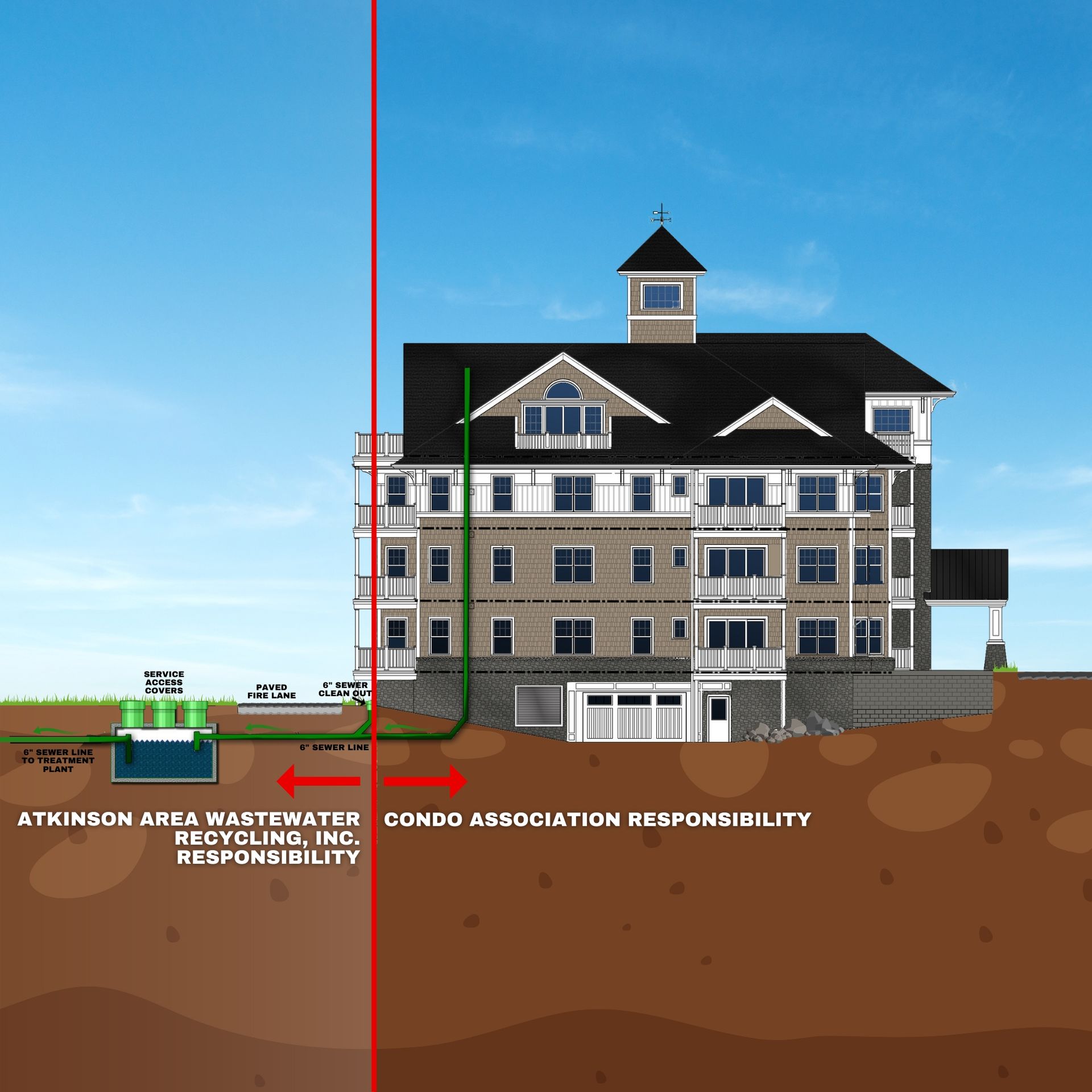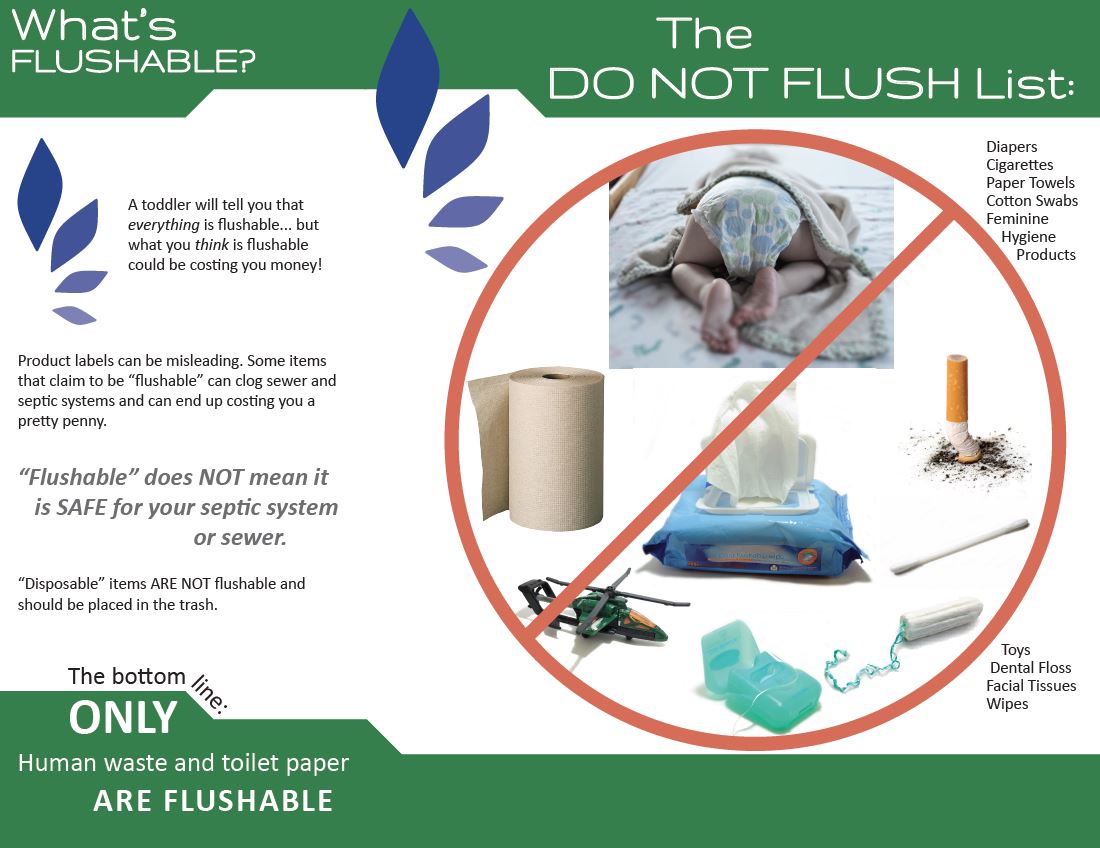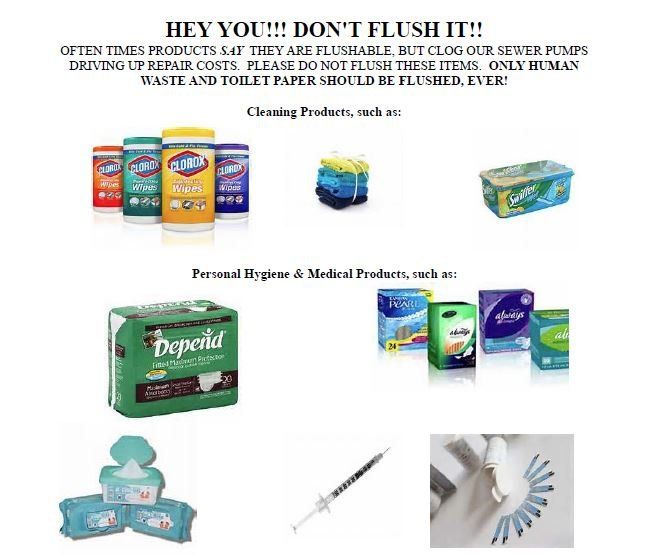WASTE WATER SERVICE
Waste Water Service
Who Owns What?
AAWWR Responsibility vs. Condo Association Responsibility

Frequently Asked Questions
Where is my water meter? How do you read my meter?
Water usage is measured by the water meter located inside your home or building. HAWC meters are read remotely using radio frequency. Refer to “Meter Information & Leak Detection” for more information .
Water usage is measured by the water meter located inside your home or building. HAWC meters are read remotely using radio frequency. Refer to “Meter Information & Leak Detection” for more information .
This month’s bill is higher than normal, why?
If there have been no changes to the waste water rates and the bill has increased, this means the water usage has also increased. Sometimes this is the first indication of a plumbing issue. You can monitor your usage and check for water leaks utilizing your water meter’s reading and flow indicator, if accessible. Please refer to “Meter Information & Leak Detection” for more information.
If there have been no changes to the waste water rates and the bill has increased, this means the water usage has also increased. Sometimes this is the first indication of a plumbing issue. You can monitor your usage and check for water leaks utilizing your water meter’s reading and flow indicator, if accessible. Please refer to “Meter Information & Leak Detection” for more information.
How does the wastewater leave my property?
Wastewater service is provided to your property by a sewer service line that collects the wastewater and carries it away for treatment.
How does the wastewater get treated?
Wastewater is treated through a series of septic tanks, aeration tanks, man-made wetland filtration ponds and lastly, a large aeration lagoon. From here, it is then disinfected and used as reclaimed irrigation water for open space at the Atkinson Resort and Country Club. Solids handling is done by utilizing standard septic tanks. These tanks are maintained by AAWWR and will be pumped out as necessary.
Who is responsible if there is a backup in my unit or building?
Backups or Clogs located within an individual unit are the responsibility of the homeowner. A backup or clog located in a sewer line internal a building servicing more than one units is the responsibility of the condo association. A backup or clog located in the sewer line outside of the building is the responsibility of AAWWR.
What can be flushed?
HUMAN WASTE and TOILET PAPER are the ONLY ITEMS that should be flushed. EVER.
PLEASE
refrain from flushing:
• Food items, plastics, wood, etc.
• T-Shirts, Rags, Towels, underclothing or ANY cotton material.
• Feminine Hygiene Products. Although many of these items say they may be flushed, they wreak havoc on sewer service lines, collection systems and pumps. Please wrap and dispose of in the garbage. Diaper Wipes. Baby and adult variety. These commercial wipes are made of a stronger material that does not disintegrate when wet.
A lot of the issues that arise are caused by IMPROPER FLUSHING OF NON-WASTE MATERIALS
and could have been wholly avoided. Continued flushing of consumer goods will cause repeated issues, which will cause sewer rates to increase as repairs are costly.
If, by accident, something falls in, (oh no!) DO NOT TRY TO FLUSH IT! REMOVE the item.
Also of Concern are FATS, OIL and GREASE.
Fats, oils and grease build up in sewers and cause blockages and backups. Although you may not dump a cup of grease down your kitchen drain, regular washing of dishes can add to this problem. Pour hot grease into a can or jar that may cool and be disposed of in the garbage. Wipe out greasy pans and dishes with a napkin or paper towel that can be thrown away before washing.
Small steps can have a huge impact on our sewer system and can save money and headaches if everyone does their part.
REMEMBER:
HUMAN WASTE and TOILET PAPER are the ONLY ITEMS that should be flushed. EVER.
Moving?
The customer of record is responsible for all charges until AAWWR is properly notified. Please refer to New Service/Cancel Service for additional information.
Purchasing or Renting a property with service provided by AAWWR?
All new customers must complete a combined Water & Sewer Service Application. Please refer to New Service for additional information.
All new customers must complete a combined Water & Sewer Service Application. Please refer to New Service for additional information.
Additional Resources
Rules & regulations under which service is provided are detailed in the AAWWR Tariff on file with the NH Public Utilities Commission. Per AAWWR’s Tariff: Customers shall maintain the plumbing and fixtures within their own premises in good repair, free from leaks and protected from freezing, at their own expense; failure to do so may result in service disconnection. Any damaged equipment will be repaired or replaced at the customer of record’s expense.
Still have questions? Contact us!

AAWWR provides waste water service for residential and non-residential properties in the Atkinson area.
Contact us through Hampstead Area Water Company, Inc
(603) 362-429954 Sawyer Ave.Atkinson, NH 03811
Business hours
Monday through Friday 8:00 am – 4:30 pm
Monday through Friday
8:00 am – 4:30 pm

